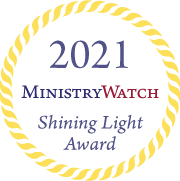Richmont Graduate University 


The information on this page was last updated 12/20/2023. If you see errors or omissions, please email: [email protected]
Summary


Celebrating more than 70 years as an institution, Richmont Graduate University is the 3rd oldest U.S. graduate school teaching professional counseling from a Christian perspective.
Richmont Graduate University provides Christ-centered education and research that advances God's work of healing, restoration, and transformation in the lives of individuals, churches, and communities.
The School of Counseling provides graduate programs that integrate counselor education and Christian faith. Richmont's programs are known for academic and clinical excellence as well as an excellent student experience. The Master of Arts in Clinical Mental Health Counseling is accredited by CACREP.
The goal of the School of Ministry is to advance the Gospel by increasing the capacities of students to understand God's Word (Knowing), to become whole and holy people (Being), and to lead and serve effectively (Doing). Graduate programs in Ministry, Spiritual Formation, and Spiritual Direction are available.
Contact information
Mailing address:
Richmont Graduate University
1900 The Exchange SE
Building 100
Atlanta, GA 30339
Website: richmont.edu
Phone: 404-233-3949
Email: [email protected]
Organization details
EIN: 620789275
CEO/President: Timothy Quinnan, Ph.D.
Chairman: Ann R. Keller
Board size: 11
Founder:
Ruling year: 1956
Tax deductible: Yes
Fiscal year end: 06/30
Member of ECFA: Yes
Member of ECFA since: 1983
Purpose
Richmont is a graduate institution aimed at providing master's level degrees in counseling, ministry, and psychological studies from a Christian perspective. Our belief is that our students should walk into their future careers with a foundation based on the values set before us by Christ.
In the midst of these goals, we strive to provide a strong community, real-life training, and approachable educators equipped to bring life and experience into every setting. Located on two beautiful campuses in Atlanta and Chattanooga, we believe Richmont is perfectly situated to enhance a culture of higher education and innovation.
Mission statement
The mission of Richmont Graduate University is to provide Christ-centered education and research that advances God's work of healing, restoration, and transformation in the lives of individuals, churches, and communities.
Statement of faith
Richmont Graduate University is founded on principles that adhere to the National Association of Evangelicals Statement of Faith appearing below. This statement has been affirmed by more than seventy denominations and thus represents a broad evangelical consensus. All faculty members affirm this statement, and students who attend Richmont will be taught from a Christian perspective.
We believe the Bible to be the inspired, the only infallible, authoritative Word of God.
We believe that there is one God, eternally existent in three persons: Father, Son, and Holy Spirit.
We believe in the deity of our Lord Jesus Christ, in His virgin birth, in His sinless life, in His miracles, in His vicarious and atoning death through His shed blood, in His bodily resurrection, in His ascension to the right hand of the Father, and in His personal return in power and glory.
We believe that for the salvation of lost and sinful man, regeneration by the Holy Spirit is absolutely essential.
We believe in the present ministry of the Holy Spirit by whom the Christian is enabled to live a godly life.
We believe God's redemptive purpose will be consumated by the return of Christ to raise the dead, judge all people and establish His glorious kingdom.
We believe in the spiritual unity of believers in our Lord Jesus Christ.
Donor confidence score

Transparency grade
A
To understand our transparency grade, click here.
Financial efficiency ratings
Sector: Colleges/Universities
| Category | Rating | Overall rank | Sector rank |
| Overall efficiency rating |    | 480 of 1104 | 58 of 129 |
| Fund acquisition rating |   | 621 of 1105 | 78 of 129 |
| Resource allocation rating |   | 744 of 1105 | 92 of 129 |
| Asset utilization rating |      | 167 of 1104 | 15 of 129 |
Financial ratios
| Funding ratios | Sector median | 2022 | 2021 | 2020 | 2019 | 2018 |
Return on fundraising efforts Return on fundraising efforts = Fundraising expense / Total contributions | 9% | 11% | 14% | 9% | 36% | 33% |
Fundraising cost ratio Fundraising cost ratio = Fundraising expense / Total revenue | 2% | 1% | 2% | 2% | 2% | 1% |
Contributions reliance Contributions reliance = Total contributions / Total revenue | 22% | 11% | 12% | 20% | 6% | 4% |
Fundraising expense ratio Fundraising expense ratio = Fundraising expense / Total expenses | 2% | 1% | 2% | 2% | 2% | 1% |
Other revenue reliance Other revenue reliance = Total other revenue / Total revenue | 78% | 89% | 88% | 80% | 94% | 96% |
| Operating ratios | Sector median | 2022 | 2021 | 2020 | 2019 | 2018 |
Program expense ratio Program expense ratio = Program services / Total expenses | 84% | 79% | 79% | 85% | 84% | 82% |
Spending ratio Spending ratio = Total expenses / Total revenue | 95% | 99% | 108% | 91% | 104% | 108% |
Program output ratio Program output ratio = Program services / Total revenue | 77% | 78% | 86% | 77% | 88% | 88% |
Savings ratio Savings ratio = Surplus (deficit) / Total revenue | 5% | 1% | -8% | 9% | -4% | -8% |
Reserve accumulation rate Reserve accumulation rate = Surplus (deficit) / Net assets | 5% | 1% | -7% | 9% | -4% | -7% |
General and admin ratio General and admin ratio = Management and general expense / Total expenses | 13% | 19% | 19% | 13% | 14% | 17% |
| Investing ratios | Sector median | 2022 | 2021 | 2020 | 2019 | 2018 |
Total asset turnover Total asset turnover = Total expenses / Total assets | 0.51 | 1.01 | 0.93 | 0.84 | 0.85 | 0.81 |
Degree of long-term investment Degree of long-term investment = Total assets / Total current assets | 2.61 | 2.34 | 2.18 | 2.11 | 2.90 | 3.49 |
Current asset turnover Current asset turnover = Total expenses / Total current assets | 1.40 | 2.37 | 2.03 | 1.78 | 2.46 | 2.83 |
| Liquidity ratios | Sector median | 2022 | 2021 | 2020 | 2019 | 2018 |
Current ratio Current ratio = Total current assets / Total current liabilities | 8.63 | 4.98 | 5.29 | 5.89 | 4.38 | 3.85 |
Current liabilities ratio Current liabilities ratio = Total current liabilities / Total current assets | 0.12 | 0.20 | 0.19 | 0.17 | 0.23 | 0.26 |
Liquid reserve level Liquid reserve level = (Total current assets - Total current liabilities) / (Total expenses / 12) | 7.37 | 4.05 | 4.79 | 5.61 | 3.76 | 3.14 |
| Solvency ratios | Sector median | 2022 | 2021 | 2020 | 2019 | 2018 |
Liabilities ratio Liabilities ratio = Total liabilities / Total assets | 24% | 9% | 9% | 8% | 8% | 7% |
Debt ratio Debt ratio = Debt / Total assets | 11% | 0% | 0% | 0% | 0% | 0% |
Reserve coverage ratio Reserve coverage ratio = Net assets / Total expenses | 151% | 90% | 98% | 109% | 109% | 114% |
Financials
| Balance sheet | |||||
| Assets | 2022 | 2021 | 2020 | 2019 | 2018 |
| Cash | $757,453 | $899,592 | $1,569,801 | $502,857 | $285,275 |
| Receivables, inventories, prepaids | $341,281 | $250,358 | $404,853 | $379,008 | $310,223 |
| Short-term investments | $2,429,165 | $2,687,814 | $1,933,963 | $1,736,744 | $1,637,822 |
| Other current assets | $0 | $0 | $0 | $0 | $0 |
| Total current assets | $3,527,899 | $3,837,764 | $3,908,617 | $2,618,609 | $2,233,320 |
| Long-term investments | $1,276,374 | $1,150,678 | $1,003,956 | $978,126 | $1,377,123 |
| Fixed assets | $3,417,228 | $3,351,723 | $3,302,650 | $3,974,253 | $4,148,397 |
| Other long-term assets | $33,532 | $32,891 | $31,961 | $30,841 | $29,718 |
| Total long-term assets | $4,727,134 | $4,535,292 | $4,338,567 | $4,983,220 | $5,555,238 |
| Total assets | $8,255,033 | $8,373,056 | $8,247,184 | $7,601,829 | $7,788,558 |
| Liabilities | 2022 | 2021 | 2020 | 2019 | 2018 |
| Payables and accrued expenses | $129,210 | $152,846 | $193,150 | $196,348 | $209,102 |
| Other current liabilities | $578,895 | $573,293 | $470,971 | $401,656 | $370,844 |
| Total current liabilities | $708,105 | $726,139 | $664,121 | $598,004 | $579,946 |
| Debt | $0 | $0 | $0 | $0 | $0 |
| Due to (from) affiliates | $0 | $0 | $0 | $0 | $0 |
| Other long-term liabilities | $0 | $0 | $0 | $0 | $0 |
| Total long-term liabilities | $0 | $0 | $0 | $0 | $0 |
| Total liabilities | $708,105 | $726,139 | $664,121 | $598,004 | $579,946 |
| Net assets | 2022 | 2021 | 2020 | 2019 | 2018 |
| Without donor restrictions | $5,080,457 | $5,256,757 | $5,738,043 | $5,331,390 | $5,577,559 |
| With donor restrictions | $2,466,471 | $2,390,160 | $1,845,020 | $1,672,435 | $1,631,053 |
| Net assets | $7,546,928 | $7,646,917 | $7,583,063 | $7,003,825 | $7,208,612 |
| Revenues and expenses | |||||
| Revenue | 2022 | 2021 | 2020 | 2019 | 2018 |
| Total contributions | $937,279 | $839,557 | $1,503,431 | $362,316 | $259,266 |
| Program service revenue | $7,034,347 | $6,213,795 | $5,931,003 | $5,655,204 | $5,342,043 |
| Membership dues | $0 | $0 | $0 | $0 | $0 |
| Investment income | $120,110 | $58,492 | $66,840 | $5,479 | $83,022 |
| Other revenue | $371,908 | $122,337 | $156,900 | $180,545 | $161,328 |
| Total other revenue | $7,526,365 | $6,394,624 | $6,154,743 | $5,841,228 | $5,586,393 |
| Total revenue | $8,463,644 | $7,234,181 | $7,658,174 | $6,203,544 | $5,845,659 |
| Expenses | 2022 | 2021 | 2020 | 2019 | 2018 |
| Program services | $6,632,610 | $6,191,688 | $5,872,134 | $5,437,772 | $5,158,601 |
| Management and general | $1,612,166 | $1,484,586 | $930,193 | $883,282 | $1,073,053 |
| Fundraising | $106,437 | $121,657 | $140,469 | $131,776 | $84,599 |
| Total expenses | $8,351,213 | $7,797,931 | $6,942,796 | $6,452,830 | $6,316,253 |
| Change in net assets | 2022 | 2021 | 2020 | 2019 | 2018 |
| Surplus (deficit) | $112,431 | ($563,750) | $715,378 | ($249,286) | ($470,594) |
| Other changes in net assets | $0 | $0 | $0 | $0 | $0 |
| Total change in net assets | $112,431 | ($563,750) | $715,378 | ($249,286) | ($470,594) |
Compensation
| Name | Title | Compensation |
| Timothy Quinnan | President | $282,183 |
| Charles Mills | Counselor | $143,152 |
| Mary Plisco | Counselor | $135,555 |
| Lorrie Slater | Counselor | $117,172 |
| Amanda Blackburn | Counselor | $117,154 |
| Stephen Bradshaw | Counselor | $112,774 |
Compensation data as of: 6/30/2022
Response from ministry
No response has been provided by this ministry.
The information below was provided to MinistryWatch by the ministry itself. It was last updated 12/20/2023. To update the information below, please email: [email protected]
History
In 1973, a group of Christian mental health professionals who explored integrating Christian faith and professional counseling founded the Atlanta Clinical College. After opening a counseling center, they partnered with Georgia State University a major state university to offer advanced professional training and research within a Christian context at what became known as the Religious Consultation and Research Society before being incorporated as the Psychological Studies Institute (PSI).
For more than 25 years, PSI offered a diploma in Christian counseling through its partnership with Georgia State. In the fall of 1998, PSI began offering its own Master of Arts in Professional Counseling degree after receiving authorization from the Georgia Nonpublic Postsecondary Education Commission and the Tennessee Higher Education Commission.
In August of 2000, Richmont opened a second campus in Chattanooga. Three years later, PSI received accreditation from the Southern Association of Colleges and Schools Commission on Colleges (SACSCOC). In 2008, Psychological Studies Institute changed its name to Richmont Graduate University and soon after purchased a new Atlanta campus.
In 2014, Richmont received accreditation from the Council for Accreditation of Counseling and Related Educational Programs (CACREP), the gold standard for clinical mental health education programs. Today the University offers 10 certificate programs in numerous specializations, a School of Ministry with three master's degree programs, a doctoral program, and dozens of continuing education offerings each year.
Presently, Richmont's mental health counselors serve around the world, working in private practices, behavioral health centers, homeless shelters, addiction rehabilitation facilities, churches, and other community-based programs that serve disadvantaged populations.
Program accomplishments
Needs
Tuition only covers part of Richmont's operational expenses. Through the support from our faithful friends and alumni, Richmont is able to make up the remaining revenue needed to continue the tradition of faith-based academic and clinical excellence.
If you have a heart for the Kingdom and wish to empower those who are pursuing graduate level education in order to answer God's call on their lives, please contact our development office and learn more about how to support Richmont's students and faculty in making a Kingdom impact.
